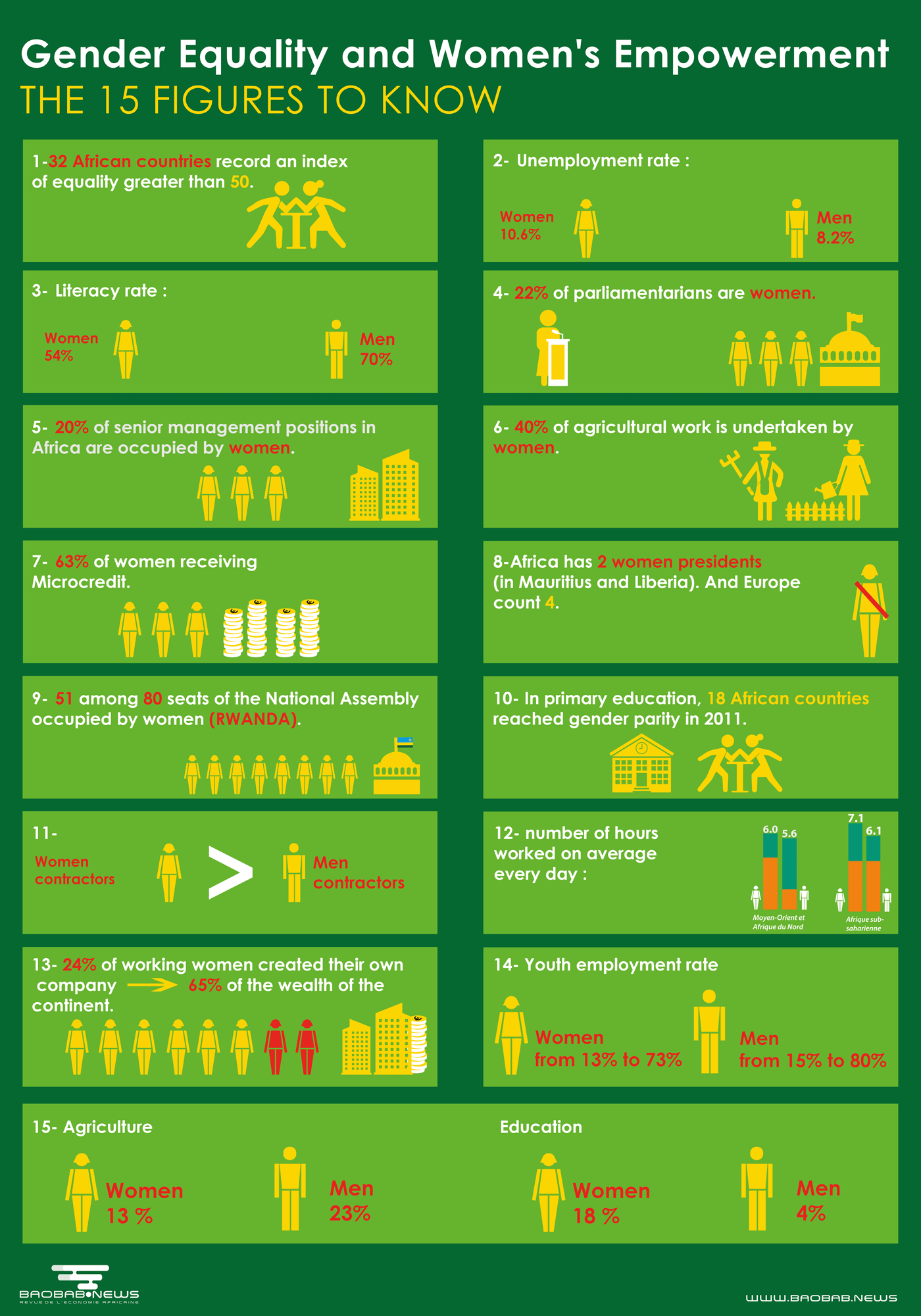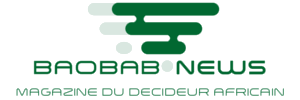
32 African countries have an Equality index greater than 50
According to the AfDB’s global ranking, 32 African countries have an index above 50. At the top of the ranking are South Africa, Rwanda, Botswana and Namibia. At the bottom of the pack are countries like Somalia, Mali, Mauritania, Niger, Chad and Côte d’Ivoire.
10.6% of the Female labor force is unemployed, compared with 8.2% for Men
According to the latest data provided by the World Bank, the female unemployment rate is set at 10.6% compared with 8.2% for men.
54% of Women can read and write compared to 70% of Men
On the continent, the literacy rate for women was 54% in 2012 against 48% in 1999 according to UNESCO. For men, this rate was 70% in 2012 against 68% in 1999.
22% of Parliamentarians are Women
On the continent, women represent an average of 22% of parliamentarians in 2015, up from 8% in 1995. In total, 19 African countries are now crossing the global average of 22.4%.
At the top of the ranking, Rwanda, Namibia, Senegal or Tanzania. Rwanda is an exception because it is the first and only country in the world in which more than half of parliamentarians are women.
Women and Agriculture
In the field of agriculture, 40% of agricultural work is undertaken by women, but they produce 80% of the food in households.
“Enabling women to participate more effectively in agricultural activities means reducing the number of people suffering from hunger and malnutrition in all its forms, as well as improving the well-being of children and families, which contributes human capital formation for future generations and long-term economic growth, “says FAO.
Women, the main beneficiaries of microcredit
In sub-Saharan Africa, the majority of women benefit the most from this method of financing. In fact, 63% of microcredit beneficiaries are women.
Affecting mainly sectors employing a very feminine workforce, microcredit is a lever of social elevation and enhancement of the status of women in many countries.
“Vulnerable to crises and violence, African women are also the continent’s greatest opportunity for growth, health and stability.
They are :
- Involved: in Rwanda, women occupy 51 of the 80 seats in the National Assembly. And in France they represent 26%
- Powerful: Africa has 2 women presidents (in Mauritius and Liberia). And Europe counts 4.
- Educated: in primary education, 18 African countries achieved gender parity in 2011
There are more Women entrepreneurs than Men
Women own a third of the businesses in Africa. In Nigeria and Ghana, there are more women entrepreneurs than men. More than 60% of Ivorian companies are run by women.
24% of working women started their own business
Entrepreneurial activity rates (global, average and regional) of the female population aged 18 to 64 between 2012 and 2017 place Africa at the top of the world podium. For example, 24% of working women created their own businesses and would be responsible for 65% of the continent’s wealth (ie between $ 150 and $ 200 billion of added value created). They are ahead of Europe and Central Asia (6%), the Middle East (9%), South East Asia Pacific (11%), North America (12%), and Europe. Latin America and the Caribbean (17%).
Youth employment rate
Youth employment rates ranged from 15% to 80% for men to 13% to 73% for women, suggesting that gender disparities in the labor market were generally lower among youth.
African Women entrepreneurs mostly specialize in Agriculture and Education
A study of African women entrepreneurs by the renowned European consulting firm Roland Berger shows that African women entrepreneurs mostly specialize their structures in agriculture and education (respectively 23% against 13% for men, and 18% against 4% men). In total, 41% of women entrepreneurs have their business specialized in these two areas, and 84% of all those surveyed say they are guided by the search for a positive impact on their environment and the world. The majority would invest in a non-governmental organization as an alternative career to entrepreneurship. Men, on the other hand, focus more on IT (16% versus 4% for women) or financial services (11% versus 3% for women).
Keywords : Africa, News, Economy, Equality Women / Men
Redaction
Baobab News
© Credits Graphics: Baobab News



